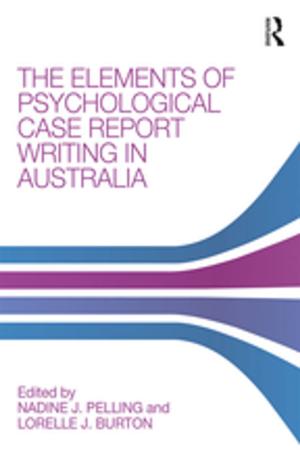Fighting Terrorism and Drugs
Europe and International Police Cooperation
Nonfiction, Social & Cultural Studies, Political Science| Author: | Jörg Friedrichs | ISBN: | 9781134132058 |
| Publisher: | Taylor and Francis | Publication: | September 12, 2007 |
| Imprint: | Routledge | Language: | English |
| Author: | Jörg Friedrichs |
| ISBN: | 9781134132058 |
| Publisher: | Taylor and Francis |
| Publication: | September 12, 2007 |
| Imprint: | Routledge |
| Language: | English |
Fighting Terrorism and Drugs is an examination of European states in their fight against terrorism and drugs, from the 1960s up to the present day.
Jörg Friedrichs explores what makes large European states willing or unwilling to participate in international police cooperation against terrorism and drugs. The book examines forty-eight case studies, with particular regard to the policy preferences of the four largest and most politically important EU Member States: Britain, France, Germany, and Italy.
The author argues that if a real understanding of international cooperation is to develop, it is important to understand what individual states want and why they want it. To explain state preferences, Friedrichs considers interests, institutions and ideas from domestic, national and international levels that can affect state preferences either positively or negatively.
This theoretically coherent book looks at international police cooperation from a truly international perspective and will be of interest to students and scholars of international relations, terrorism, criminology, international law and European integration.
Fighting Terrorism and Drugs is an examination of European states in their fight against terrorism and drugs, from the 1960s up to the present day.
Jörg Friedrichs explores what makes large European states willing or unwilling to participate in international police cooperation against terrorism and drugs. The book examines forty-eight case studies, with particular regard to the policy preferences of the four largest and most politically important EU Member States: Britain, France, Germany, and Italy.
The author argues that if a real understanding of international cooperation is to develop, it is important to understand what individual states want and why they want it. To explain state preferences, Friedrichs considers interests, institutions and ideas from domestic, national and international levels that can affect state preferences either positively or negatively.
This theoretically coherent book looks at international police cooperation from a truly international perspective and will be of interest to students and scholars of international relations, terrorism, criminology, international law and European integration.















